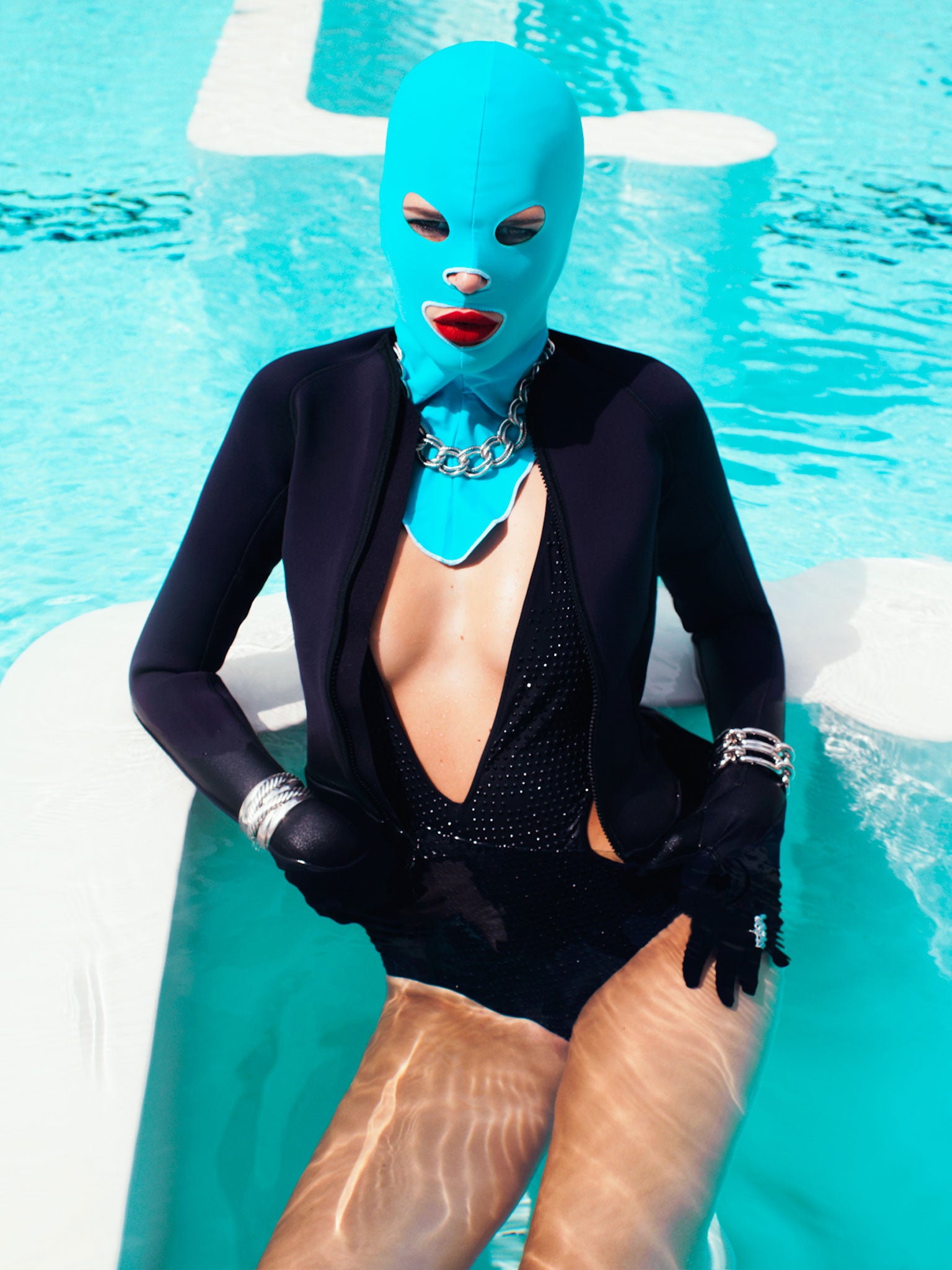Facekini: Bizarre Chinese summer accessory lands international fashion photoshoot
The colourful summer accessory cover the face and neck to protect the skin from the sun

Your support helps us to tell the story
From reproductive rights to climate change to Big Tech, The Independent is on the ground when the story is developing. Whether it's investigating the financials of Elon Musk's pro-Trump PAC or producing our latest documentary, 'The A Word', which shines a light on the American women fighting for reproductive rights, we know how important it is to parse out the facts from the messaging.
At such a critical moment in US history, we need reporters on the ground. Your donation allows us to keep sending journalists to speak to both sides of the story.
The Independent is trusted by Americans across the entire political spectrum. And unlike many other quality news outlets, we choose not to lock Americans out of our reporting and analysis with paywalls. We believe quality journalism should be available to everyone, paid for by those who can afford it.
Your support makes all the difference.CR Fashion Book’s most recent fashion shoot features facekinis, a bizarre Chinese summer accessory aimed at protecting the face from the sun.
In 2012, a trend emerged in China that saw beachgoers’ covering their faces in Mexican wrestler inspired masks. The popular swimming gear is a nylon sunscreen mask which covers the entire head and neck down the collar bones, revealing only the eyes, mouth and nose.
The facekini became popular in the north-eastern city of Qingdao. Women would wear them to protect their skin from the harmful rays and from jellyfish while at the beach. They’ve become so popular that they’re under mass production in China and are available to buy in local swim shops for 15 to 25 yuan (£1 to to £2.50) or online, available in different bright colours and playful prints just like swimwear, with prices from $16 to $24 (approx. £10 - £14).
The unusual Chinese trend has caught the attention of former Vogue Paris Editor, Carine Roitfeld, who ran a swimwear photoshoot of models wearing facekinis in her biannual magazine CR Fashion Book.
The editorial reads: “Our latest summer story represents an opposing to ideal of beauty altogether, with masked poolside models set out to soak up as little sun as possible.
“While our summer beauty routines are devoted to bronzing, self-tanning, and tan-extending, in Asia, beauty-seekers are more likely to centre theirs around lightening and brightening. A tan does not signify a chic trip to Capri, but it could mean hours of hard labour spent out in the harsh sun.”
Video: When the trend hit the beaches of China
The models are seen wearing sophisticated one-piece swimsuits from designers like Alexander Wang, Armani and Michael Kors, adorned with glamorous jewellery and facekinis in different colours and patterns. “These beautiful eyes are peering from behind a mask—still enjoying summer, but avoiding a summer glow at all costs.”
According to CNN, a local shop owner who sales the masks in China, says the facekinis first appeared about seven years ago, but with the increased awareness of sun damage and health concerns, it picked up couple years ago.
CNN Travel explains that Chinese women have a saying that translates to “white skin covers up a hundred uglinesses”. They use umbrellas while walking on the streets and wear long-sleeve tops on sunny days. It seems Asian women are extremely concerned about the sun damage in the skin.
Recently, it was revealed that topless sunbathing is no longer “du jour” in France due to the increased awareness about skin cancer. There’s more recognition of the detrimental damage of UV rays on the skin, and women have taken action perhaps not as extremely as Asian women, for example, who have opted to not even reveal their face to the sun.
Although it seems a bizarre summer accessory, facekinis might land in your favourite swimwear store sometime soon.
Join our commenting forum
Join thought-provoking conversations, follow other Independent readers and see their replies
Comments